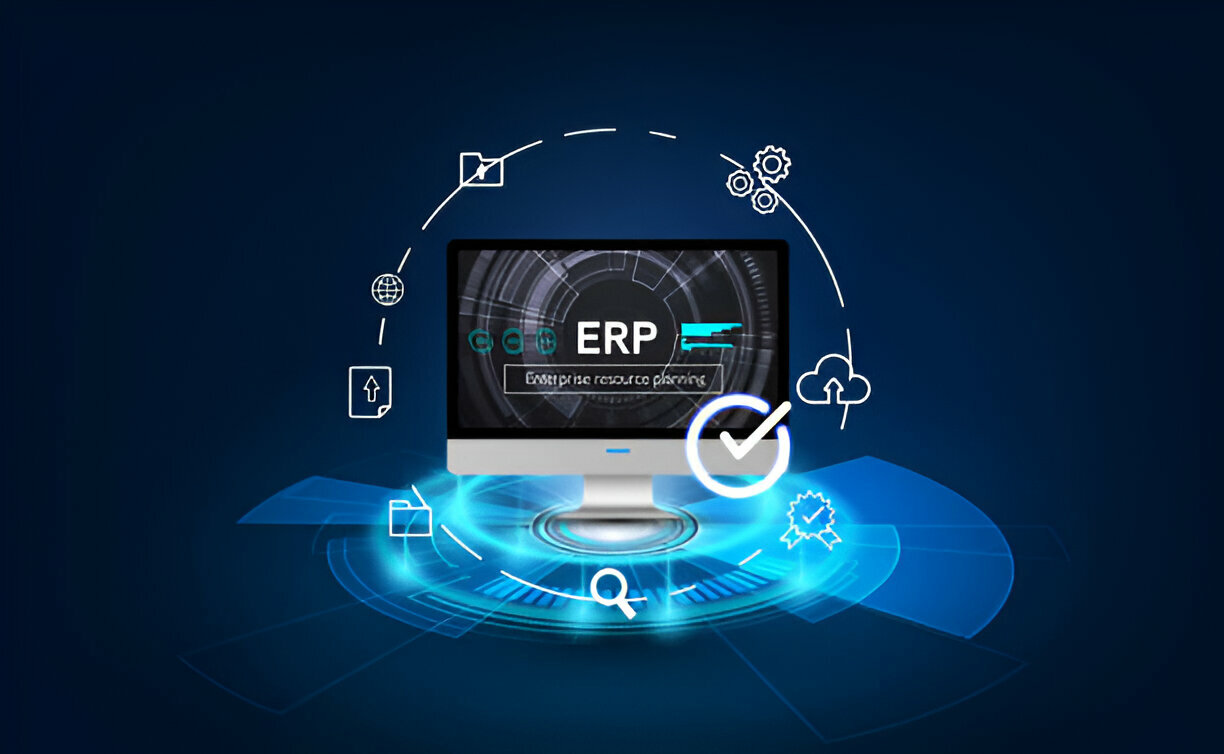2024.7.31
The Role of ERP in Digital Transformation
Digitalization is now a vibrant necessity in the rapidly evolving business environment for managers and organizations who wish to sustain themselves and adapt to innovations. This change can be brought about with the aid of Enterprise Resource Planning (ERP) solutions that would enhance the organization’s operations through improving the forms of processes and working with innovative technologies. In this article, the author reviews the basic components of ERP within the framework of digital regulation, as well as the numerous advantages of this system for businesses of different types and fields.
The Role of ERP in Digital Transformation

With today’s increased rates of technological advancement, firms realize the relevance of ERP systems in business digital transformation. ERP systems can be defined as the essential support system for today’s organizations since they provide support to significant operations while also being the conduit for data sharing in an organization.
Enabling Integrated Business Processes
- ERP systems are designed to be a single package where different functions of a given company are located.
- This integration enables: Information flows seamlessly, Improved collaboration.
- Ensure data sharing across the different departments is centralized.
- ERP S/4Hana consolidates and organizes the core processes, including finance, supply chain, and customer relationship management, to enable the creation of a flexible and connected environment.
- Data from one of the surveys showed that organizations that implemented ERP systems realized an average improvement of 15% in operations improvement and a twelve percent cut in expenses for inventory.
Powering Data-Driven Insights
- Enterprise resource planning systems centralize data coming from other systems so that businesses have a single source of business performance figures and KPIs.
- This imbues an organization with the capacity to get more profound access and discover solutions with the assistance of an ERP consultant.
- Using ERP, data analytical info empowers organizations to be relevant to the shifting market conditions and act accordingly.
- An ERP consultant can use ERP systems’ analytical and data processing functions to advance the organization’s digital transformation agenda and inform decision-making.
- When connected in an integrated manner, these ERP components, with the assistance of an ERP consultant, sort out the data obtained from various sources to provide an overall picture of an organization’s business performance.
Enabling Automation and Optimization
- ERP systems help reduce time-consuming and routine work and standardize corporate processes.
- ERP helps to minimize data redundancy and increase the productivity of the workflow since applications such as finance, inventory, and production planning can be incorporated.
- It is also noteworthy that such automation minimizes the occurrence of mistakes and lets personnel perform more useful tasks, contributing to the steady enhancement and fresh ideas.
- For instance, a Manufacturing firm deployed an ERP to manage inventory by automating its various activities. This led to an improved company carrying cost of 20% and an increase in on-time delivery of 15%.
Facilitating Agility and Scalability
- SAP S/4HANA ERP is a cloud-based solution that allows digital transformation in today’s organizations’ modern environments.
- The cloud facilitates the easy addition of new functionalities and technologies to the ERP system. It provides real-time data access regardless of the user’s location.
- This allows firms to address changes in the market or clients’ needs quickly, aiming to capture new opportunities and threats.
- For instance, a manufacturing company successfully implemented SAP S/4HANA Cloud ERP. This helped the company increase and decrease production capacity by 30% to meet consumers’ needs.
Improving the Customer Experience
- ERP systems provide a holistic field of view of client relationships and choices, indicating that the organization is attending to client needs.
- This enables firms to: Deliver customizations to customers in terms of products and services being provided to them, Optimize response and reduce time to respond & Establish stronger, more efficient relationships with customers.
- For instance, one retail manufacturer that implemented an ERP system saw 30% fewer customer inquiries about production Stock, and their Customer satisfaction indices, which were measured on a scale of 100%, were 25% higher because of the quicker response time.
- Here is a table that shows features of ERP used for improving customer experience in the digital transformation era:
| Feature | Description |
| Order Management | Streamlines order processing, reducing errors and delays. |
| Customer Data | Centralizes customer information for customized services. |
| Inventory Control | Ensures product availability and timely delivery. |
| Real-Time Analytics | Gives room for quick reaction to customers’ needs. |
| CRM Integration | Strengthens the connection with clients. |
Conclusion
This makes the need for ERP in digital transformation tremendously central. ERP systems provide the basic framework for improving the efficiency of a company’s processes, integrating data, and enabling timely decision-making. Implementing ERP as one of the strategies toward digital transformation allows organizations to enhance the operation’s efficiency, enhance productivity, and ultimately compete effectively in a dynamically competitive digital environment. The establishment of a substantial ERP solution is a strategic process that provides new opportunities and pushes forward a long-term evolution.